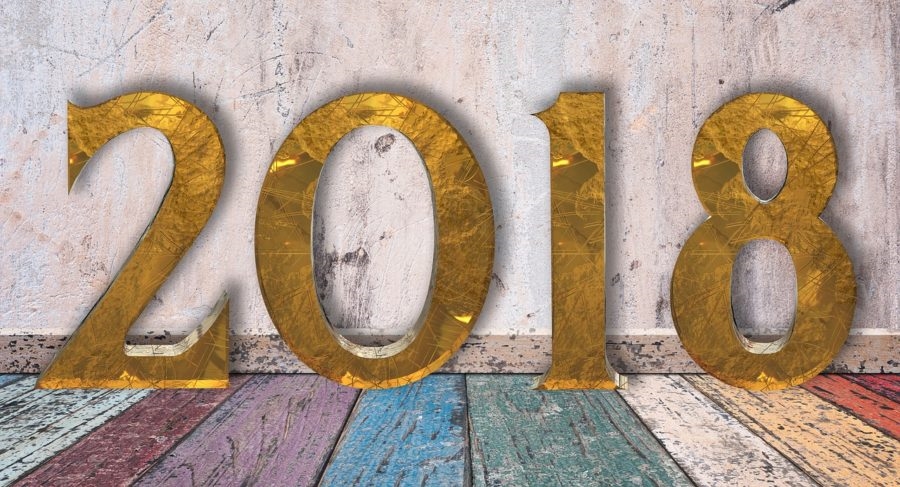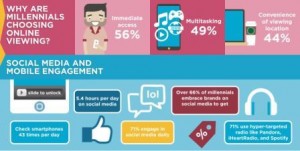— December 27, 2017

BiljaST / Pixabay
In 2017 the HR industry took a deep dive to find ways to enhance employee engagement, diversify, exploit potential and develop an agile structure. There’s more for HR to contribute towards these initiatives, concerns and issues. Hence, 2018 will see a continuation of these efforts. However, to add to the mix there’s also going to be a lot of focus on technology and how it can play a vital role in each of these domains.
In the past two decades, technology has been a game changer, enabler and a disruptor. In 2018 it’ll continue to build on its reputation and impact how we find, connect, engage and even replace people. The question today for organizations isn’t how to embrace technology (and to what degree). What’s going to be interesting to see is what happens after technology has impacted our HR strategies and how it enhances the workplace.
2018 will the year when HR professionals really put on their thinking hats to redefine the function and push out revolutionary strategies. It’s not about attracting, retaining and rewarding your talent. In the coming years, you’ll be focusing your energy on how to enhance the way of life of your workforce.
So here are five HR trends I foresee being the center of most of our attention.
1. Focus on Employee Wellness
Work-life balance used to be a myth. You could even say it was a desired state that many couldn’t realistically achieve. However, more and more HR professionals are recognizing the value of employee wellness and how it directly impacts productivity. Work stress has been the number one factor that has contributed to much of employees’ anxiety and low morale. 2018 will see a proactive approach to limit checking emails outside office and reduce working while on leave. Further steps will be taken to design policies and build practices that’ll encourage employees to tend to their personal needs while efficiently utilizing their time at the workplace. Also, the philosophy behind the enhanced and attractive benefits that companies are now offering, beyond just being attractive to recruit talent, is the reduction of stress.
2. Continuous and Frequent Feedback
Over the past few years, the effectiveness of performance reviews has been diminishing. Most highly engaged employees receive continuous and frequent feedback that they appreciate and find more desirable than annual or semi-annual reviews. The trouble with formal reviews is the delay in corrective feedback and the delivery of the communication that spells out the expected desired output. Reviews also tend to be lengthy and often mundane. In the year 2018, reviews will continue to be on the decline and feedback will be favored. Today’s talent is much more eager, has a shorter attention span and is swiftly responsive. To cater to this breed of talent you’ll need to tweak your HR practices to facilitate their needs, career aspirations and engagement levels.
3. Empowered by the Cloud
Remember the days when you simply had to be on your company’s network to access information and data? That has changed, all thanks to cloud computing. More and more companies are harnessing the power of the cloud and VPN technologies to empower employees with the ability to access information remotely and virtually from anywhere in the world. 2018 will continue to see this prevalent HR trend offering employees more flexibility. However, more importantly, companies now have the ability to tap into global talent to be part of their teams. Access to global talent has allowed companies to be more agile, lean and increase their bench-strength. Having a remote workforce also impacts traditional organization structure by merging cross-functional talent to work more closely and remove needless silos.
4. The Future’s Talent
When you think of training the first thing that usually comes to mind is learning to acquire new skills. While that’s true to some extent, a rising change is being experienced in what the training is aiming for. Thanks to automation and development in artificial intelligence, much of the repeatable tasks of jobs are being replaced. But it’s not just the minimally skilled jobs that are being threatened. Predictive analytics has, to a large degree, replaced several levels of management and decision making as well. So what will 2018 see in this case? Companies will now start looking at their human resources to determine what capacities they can build in order to have a more relevant workforce in the future. The skills of your talent today won’t be relevant by the end of 2018. Hence, companies will be taking a close look at who they can develop to take on the future with more challenging roles.
5. Gamification
Gamification has been gaining a lot of traction in the corporate world lately. Using its versatile ability to turn engagement into a competitive game format, the application of gamification is wide ranged. Today businesses are using it to screen candidates for their talent selection, marketing their products and services and enhancing the scope of their training programs. The catchy part of gamification is how it transforms often tedious tests into a fun engagement platform where you’ll be tested for cognitive abilities and critical skill sets. And of course, when you take it a step further into the world of smartphone apps you’ll be able to exploit its full potential even more. The results are astounding when you consider the talent pool you have access to and the financial savings you enjoy thanks to gamification.
2018 promises to be yet another exciting and game-changing year for professionals in all areas. Looking at these HR trends you could conclude that irrespective of what you do, what level you’re at and what you aspire to be, the future is wide open for those who are bold and brave.
Business & Finance Articles on Business 2 Community
(65)








